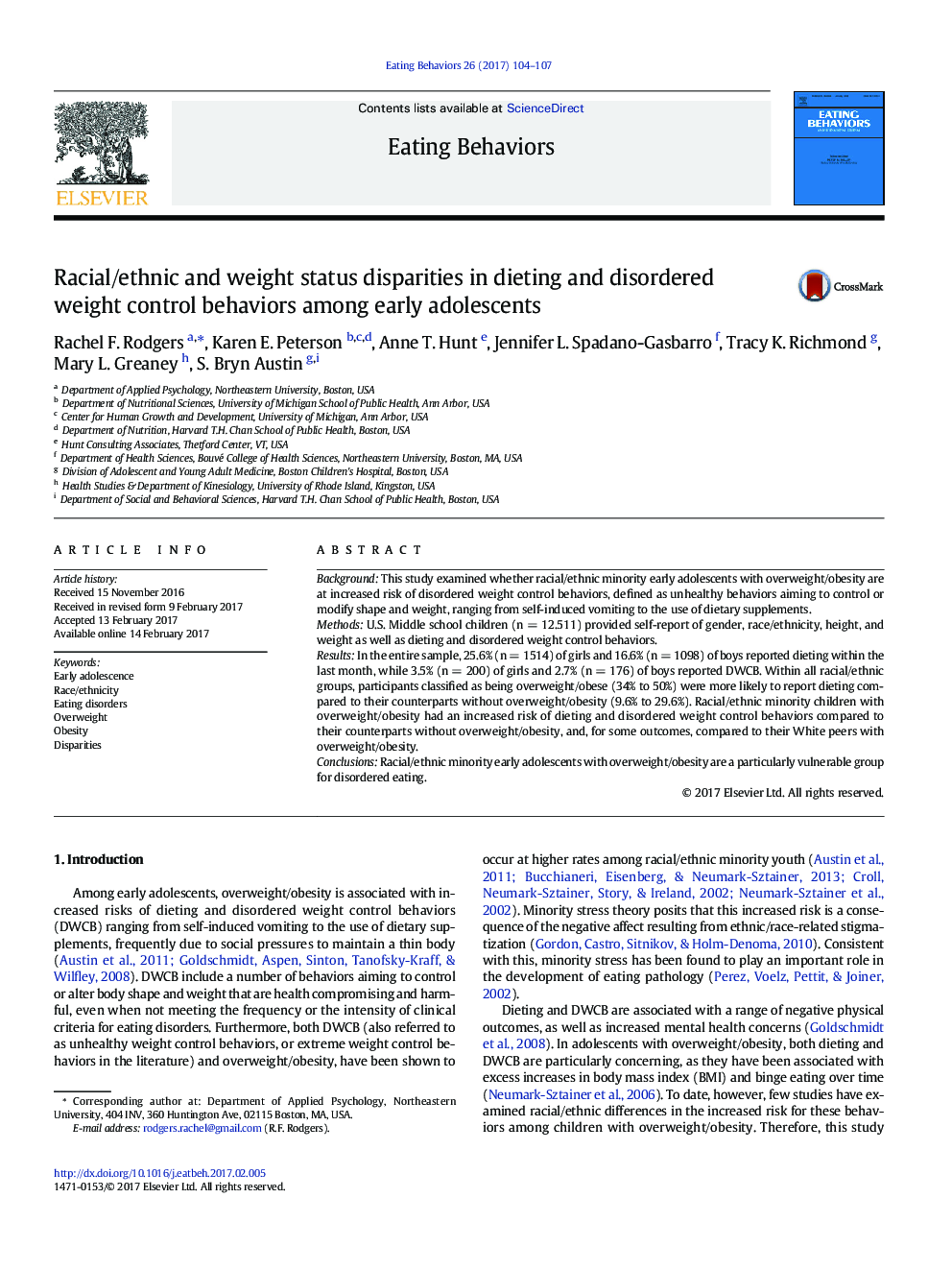| Article ID | Journal | Published Year | Pages | File Type |
|---|---|---|---|---|
| 5038802 | Eating Behaviors | 2017 | 4 Pages |
â¢Youth with overweight/obesity were more likely to reporting dieting and DWCB.â¢Racial/ethnic groups differences emerged in risk for dieting and DWCB.â¢For some DWCB, the risk was greatest for racial/ethnic minority youth with overweight/obesity.
BackgroundThis study examined whether racial/ethnic minority early adolescents with overweight/obesity are at increased risk of disordered weight control behaviors, defined as unhealthy behaviors aiming to control or modify shape and weight, ranging from self-induced vomiting to the use of dietary supplements.MethodsU.S. Middle school children (n = 12.511) provided self-report of gender, race/ethnicity, height, and weight as well as dieting and disordered weight control behaviors.ResultsIn the entire sample, 25.6% (n = 1514) of girls and 16.6% (n = 1098) of boys reported dieting within the last month, while 3.5% (n = 200) of girls and 2.7% (n = 176) of boys reported DWCB. Within all racial/ethnic groups, participants classified as being overweight/obese (34% to 50%) were more likely to report dieting compared to their counterparts without overweight/obesity (9.6% to 29.6%). Racial/ethnic minority children with overweight/obesity had an increased risk of dieting and disordered weight control behaviors compared to their counterparts without overweight/obesity, and, for some outcomes, compared to their White peers with overweight/obesity.ConclusionsRacial/ethnic minority early adolescents with overweight/obesity are a particularly vulnerable group for disordered eating.
